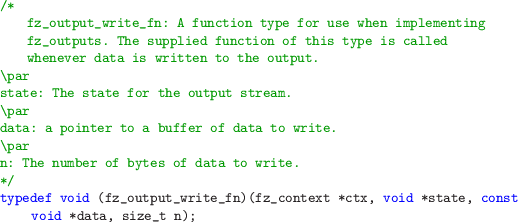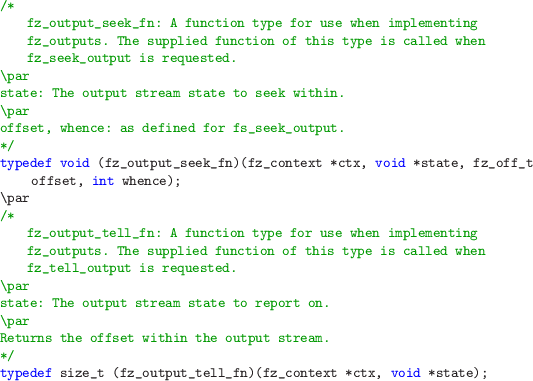Next: Colorspace Internals Up: MuPDF Internals Previous: Stream Internals Contents Index
The concepts embodied by a fz_output object, and details of how to use them were given in Output Output. The above, relatively rich, set of functions are implemented on a fairly simple basic structure.
To implement your own fz_output, simply define a creation function of the form:

This has parallels with the implementation of fz_streams, but is not quite identical.
If state needs no destruction, then we can use NULL in place of foo_close. Otherwise foo_close should be a function of type:

This can be as simple as doing fz_free(ctx, state), or (depending on the complexity of the state structure) can require more involved operations to clean up.Many fz_output implementations rely on close being called to ensure the output is correctly flushed, and no data lost.
The most important function and the only non-optional one is foo_write. This is a function of type:

Optionally we can choose to have our output stream support fz_seek_output and fz_tell_output. To do that we must implement foo_seek and foo_tell respectively, and assign them out->seek and out->tell during creation.
